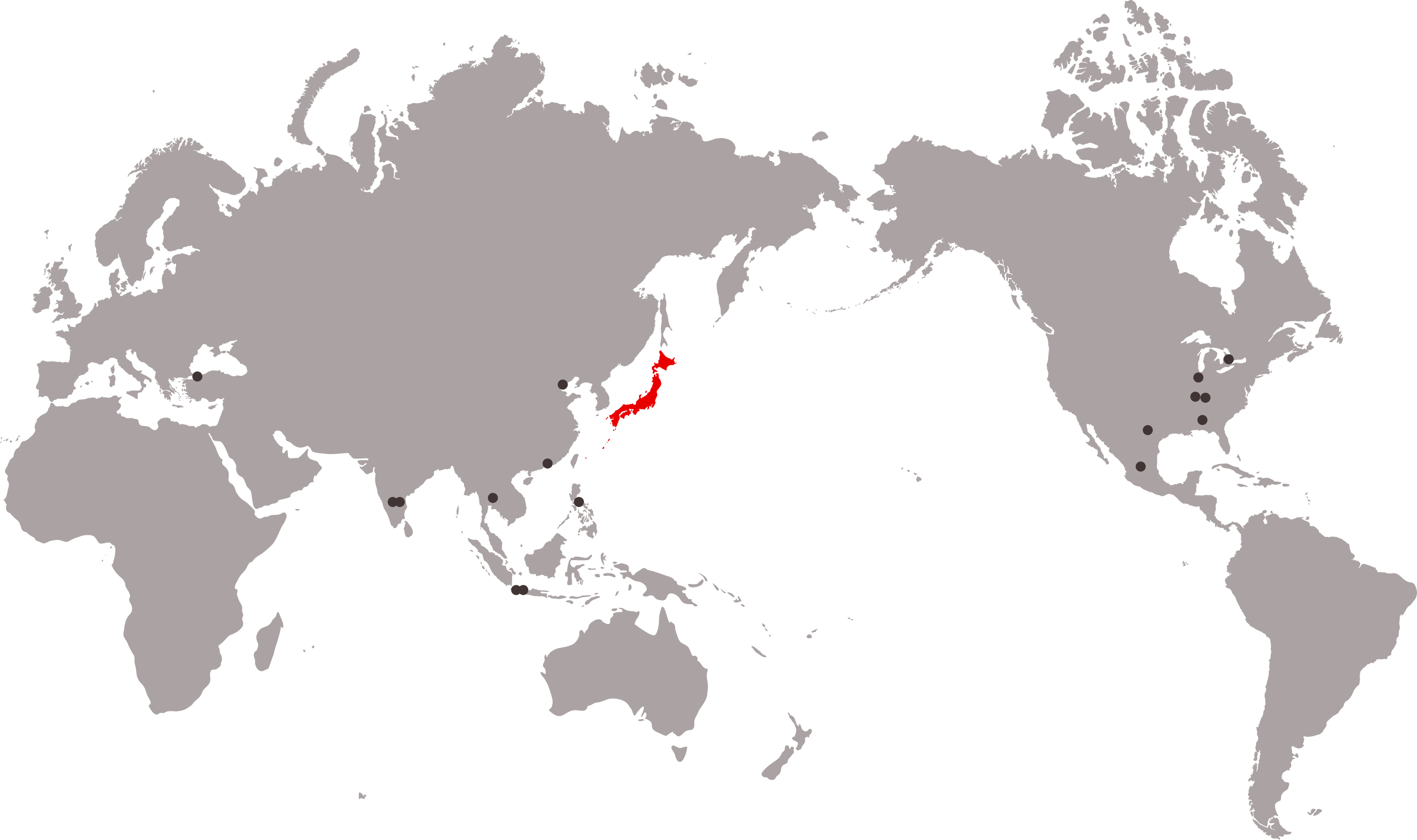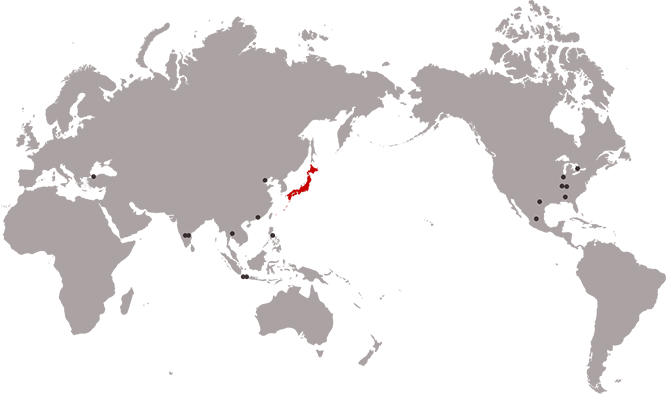- ATTRACTION of TOYOTETSU
- PRODUCTS & TECH
- NETWORK
- Domestic Bases
- Overseas Bases
- Toyotetsu America, Inc. (TTAI)
- Toyotetsu Mid America, LLC (TTMA)
- Toyotetsu Texas, Inc. (TTTX)
- Fukai Toyotetsu Indiana Corp. (FTIC)
- Y-tec Keylex Toyotetsu Alabama. Inc. (YKTA)
- Toyotetsu Canada, Inc. (TTCA)
- Toyotetsu de Mexico S.A. de C.V. (TTMX)
- Toyotetsu Otomotiv Parcalari Sanayi Ve Ticaret A.S. (TTTI)
- PT. Nusa Toyotetsu (NTC)
- PT. Nusa Toyotetsu Engineering (NTTE)
- Toyotetsu India Pvt.Ltd., (TTIA)
- Toyotetsu India, Auto Parts Pvt.Ltd., (TTID)
- Toyotetsu (Thailand) Co., Ltd. (TTTH)
- Technol Eight Philippines Corp.(TEP)
- Tianjin Toyotetsu Automobile Parts Co., Ltd. (TTAP)
- Guangzhou Toyotetsu Automobile Parts Co., Ltd. (GTAP)
- COMPANY INFO.
- SUSTAINABILITY
- NEWS
- Sitemap
- Privacy Policy
- Site Usage Conditions
- For Internal Use
- Gallery
- CONTACT













